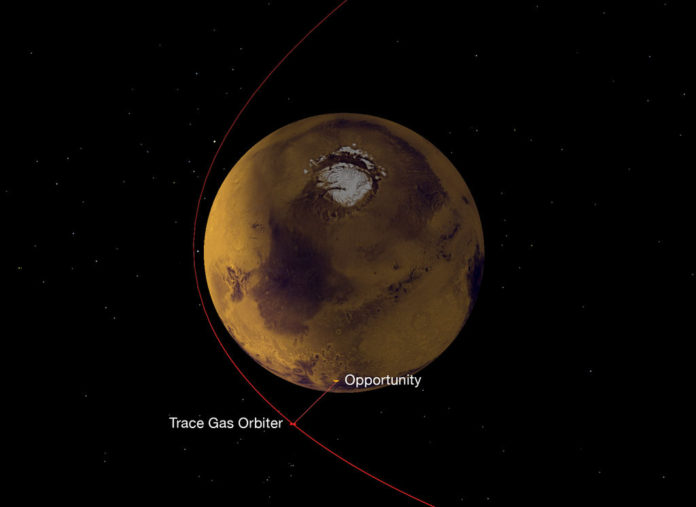At some point in life, everyone has fantasized about living on another planet. You probably had that period in your childhood when you would hold your toys and pretend you were on Planet Make-believe. Or maybe it was later when you had so many problems at work and were just wishing that you had somewhere to run to (assuming that you did not just want to head home). Or you may be the sort of person who is skeptical of alien life and cannot wait to rebut every discovery made about life on other planets. Whatever kind of person you are, it is time you got to thinking about life on Mars because it is looming closer with each passing day.
Years ago scientists first came up with the hypothesis that Earth’s neighbor in the solar system, Mars, was inhabitable by human beings. The postulation was followed by hundreds of research projects and space missions because people genuinely wanted to know if it was possible they would be visiting their progeny on a whole other planet. Many publications later, it became a fact: yes, human beings can live on earth but wait, there is a catch. It will require evolution and a host of other prerequisites before man can achieve that feat.
And that is when evolution began. Think of the things you have here on earth that enable you to survive. You have water, air, food, energy, accommodation, clothing and raw materials. These resources allow our survival on earth, and they can do the same for us on Mars. The fact that people have discovered ways to obtain these resources on a foreign planet means that we are getting closer to living on Mars. Here’s how.
- We have the food
Decades ago early man lived in caves and hunted and gathered for his supper. Flora and fauna were his sources of sustenance. The modern world has moved way past depending on naturally occurring sources of food. Owing to research across the globe and cooperation between nations, man can now manufacture his food. He can genetically engineer most of the raw materials that would be used in processing his foods.
Where individuals cannot grow their food from scratch, they have made greenhouses in their place. In greenhouses, the temperatures and other physical conditions of an atmosphere can be fine-tuned to suit the growth of any crop. The integration of these methods into life on Mars will probably be harder than humans are used to at this point, but it does not mean that it will be impossible.
- We’ll just take advantage of Mar’s naturally-occurring resources
When scientists first announced that Mars could sustain life, they did so after looking at the water and ice content of the planet. Now, modern man has a few methods that he can harvest water. He could drill ice caps and melt ice to water, or get the water in its natural state.
Mars has water. Suppose human beings were to produce Hydro-electric Power from it. They would have the energy to last them a few lifetimes.
- There’s a way to get there
Remember Elon Musk? The man who proposed that people link up their brains to AIs? He also achieved something else. Elon Musk’s company, SpaceX, became the first company to reuse a rocket booster. He had used the booster once to launch cargo into space before, and he employed it again earlier this year. The reuse of the booster opened up a host of possibilities for teams like NASA. It meant that world agencies were now optimistic that they could manufacture shuttles and rockets that could fly into space and back in the future.
Think about it. You will now have shuttles that can transport you from Earth to Mars and back. The idea is still far from realization, but there is hope for it. Knowing that you can safely travel to Mars just makes it more plausible that human beings will get there in the years to come.
- There is energy (for anyone who feels cold there)
Energy is one thing that humanity will always need to survive. Energy powers people’s bodies. It also aids them in meal preparation. It keeps them warm in bitter winters and makes their work easier in farms. They would similarly need it on Mars.
Scientists who made the discovery about obtaining energy from water by use of solar energy probably did not have Mars in mind. Nevertheless, their findings will see that humans can get access to power even on a foreign planet. Look at it this way. Mars is abundant in water resources. With the energy from the sun, human beings can harvest power just as they would on Earth. That means that anything that they depend on power for can still be carried out in Mars.
- NASA just proved we can stay in space for longer
This week an astronaut from NASA broke the record for the longest duration that any NASA member had ever stayed in space for. Peggy Whitson stayed in space for 534 days. The aim of the mission had been to assess the performance of the human body outside the conditions that it was accustomed to. You may ask what the relevance of this discovery to our getting closer to living on Mars is.
To begin with, Whitson just demonstrated that people could stay in space for longer. If ever in the future shuttles malfunction in space, at least you know human beings will not go extinct just because they got stuck in space. Also, the duration Whitson lasted is a good indicator that humankind is not averse to space life. Even with the promising results though, people have a long way to go before they are Mars-ready. For one, they do not know how they would react if they lived in the elements, not in shuttles or regulated body suits. Another factor to consider is that astronauts like Whitson are conditioned toward life in space before their missions so the mission results may not apply to every person.




